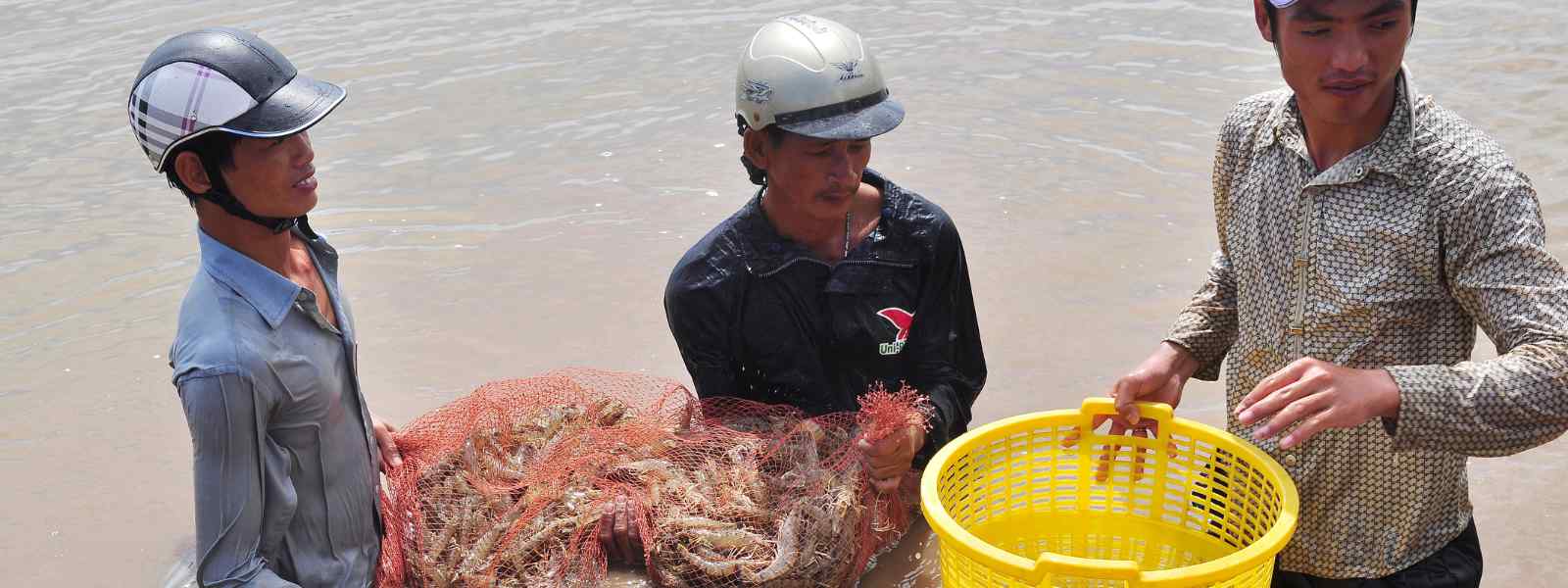
Scientists are set to transform shrimp farming in Southeast Asia by developing low-cost, early-warning monitoring systems to improve sustainability in one of the region’s most vital industries.
The three-year project, worth more than £3 million, aims to arm small-scale shrimp farmers with affordable tools to monitor water quality, detect pathogens and predict environmental threats in real time.
Quick detection
The project will combine the local knowledge of shrimp farmers with expertise in biosensing technology, climate modelling, aquatic health, and artificial intelligence (AI). The team is working on a hand-held sensor that can quickly detect pathogens and harmful nitrogen levels in pond water, alongside an AI-driven prediction tool that uses climate data to forecast disease risks.
Shrimp farming, a major economic driver in Vietnam and Thailand, provides millions of jobs and contributes significantly to global seafood exports. However, disease outbreaks and environmental challenges cost the industry billions of dollars every year. Existing monitoring technologies are often too expensive or complex for small farmers, leaving them vulnerable to sudden losses.
The University of Strathclyde is a partner in the project, which is led at the University of the West of Scotland (UWS) and also includes scientists from Can Tho University in Vietnam, Vidyasirimedhi Institute of Science and Technology in Thailand and the James Hutton Institute.
The study will also pioneer gender-inclusive approaches to aquaculture, ensuring that both men and women in the industry benefit from training and technology adoption.
Adaptable technology
While the project focuses on shrimp farming in Vietnam and Thailand, the technology is highly adaptable and could be expanded to other aquaculture systems across Southeast Asia and beyond.
Professor Fiona Henriquez-Mui, Head of Strathclyde’s Department of Civil and Environmental Engineering, is project co-lead and an expert in parasitology and host-pathogen interactions. She said:
By working closely with local farmers, we are ensuring that the tools we develop are not just scientifically advanced, but also practical, affordable, and easy to use to protect aquatic health. This research has the potential to drastically reduce shrimp mortality rates and increase yields.
Professor Damion Corrigan, LGC Chair in Measurement Science for Health in Strathclyde’s Department of Pure and Applied Chemistry, said: “This is an exciting step forward in precision aquaculture. The low-cost, real-time monitoring system we’re developing could be a blueprint for sustainable fish farming worldwide, helping to tackle food security challenges in a changing climate.”
The initiative aligns with Vietnam and Thailand’s national aquaculture growth strategies, ensuring the project’s findings contribute to long-term economic and environmental sustainability. The project’s success could reshape aquaculture practices worldwide, offering a low-cost, high-impact solution to one of the industry’s most pressing challenges.
The project is backed by the International Science Partnership Funds (ISPF) and UK Research and Innovation (UKRI).